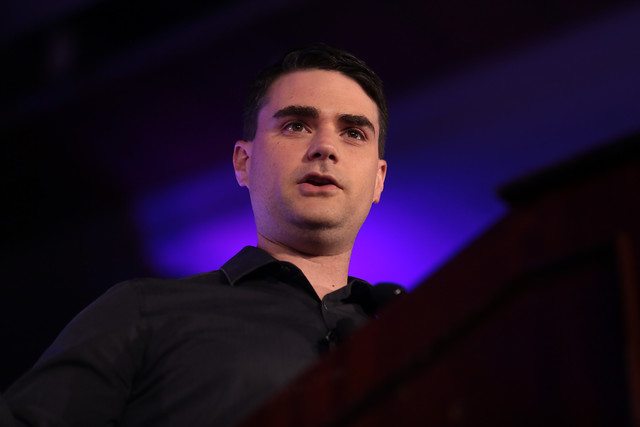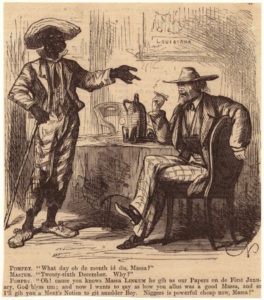Facts Don’t Care About Ben Shapiro’s Feelings
The conservative pundit is being roasted for a disastrous interview with the BBC, but he exposed himself as an intellectual fraud long ago. "The Right Side of History" author Ben Shapiro. (Gage Skidmore / Flickr )
"The Right Side of History" author Ben Shapiro. (Gage Skidmore / Flickr )
Last week, Ben Shapiro, the conservative commentator whom The New York Times once dubbed “the cool kid’s philosopher,” went on the BBC to promote his new book, “The Right Side of History: How Reason and Moral Purpose Made the West Great.” There, he faced off against Andrew Neil, a ruddy, prehistoric Scottish Tory and former Rupert Murdoch protégé. The segment quickly went viral.
Neil isn’t a cagey interviewer or a particularly incisive one, but whereas the American conservative tendency is toward mawkish, self-pitying grievance, the British conservative mode tends to relentlessly condescending hostility. American popular media has no such characters; some of its conservative figures—a Tucker Carlson, say—can be hectoring, but they lack the fetish for cringing awkwardness that the British seem to love so much, and in any case, they are professionally committed to providing a friendly forum for the Ben Shapiros of the world.
Neil asked a few broadly challenging, although not especially pointed, questions. He did not ask his subject to explain the irony of his book’s hyperbolic title: Shapiro has at least twice disavowed the very notion of a “right side of history,” which he called “the most morally idiotic phrase of modern times.”
He did ask if an abortion ban like the one recently passed in Georgia takes us back to “the dark ages.” He asked: What are Judeo-Christian values? Shapiro grew increasingly flustered, accused the chuckling, famously conservative host of liberal bias, and eventually stormed out of the interview. Poor Ben forgot the core advice of Rule No. 2 (“Hit First”) of Ben Shapiro’s own “How to Debate Leftists and Destroy Them: 11 Rules for Winning the Argument”: “You have to know your opponent. You have to know what he’s going to say, what his favorite tactics are, and what his default positions will be. You need to learn your opposition inside-out.”
The liberal internet lit up in gleeful schadenfreude. “Andrew Neil DESTROYS Ben Shapiro.” Would that it were so. As always in these hopped-up internet-era contretemps, everyone emerges entirely unscathed and goes right back to doing exactly what they were doing before. Andrew Neil will continue to perform a curmudgeon’s insulting incredulity, and Ben Shapiro will continue to misunderstand the common conventions of pronoun usage for an audience of angry and frustrated young men.
Ben Shapiro began his career as a conservative wunderkind, and he still plays the child prodigy, trading on his boyish looks even as he edges into a weary middle age. Though he is an author in the sense that Ann Coulter is an author, hastily patching together compendia of liberal outrages and Democratic skullduggeries, he’s probably best recognized as a YouTube sensation and campus speaker. During these screeds, he makes a series of banally un-PC remarks—affirmative action is bad; transgender people are mentally ill—before jumping into sprawling debates with college students, whom he destroys with logic and reason. Videos of these encounters swiftly find their way online, where they are breathlessly promoted under the phrase: Ben Shapiro DESTROYS Liberal Snowflakes. It’s become a meme.
In the wake of Shapiro’s embarrassing performance, I went back through a few hours of those reputation-making campus colloquies. They were not what I had been led to believe. For every teary purple-haired progressive who breaks down in the face of Shapiro’s deliberate callousness, there are dozens and dozens of kids who get to the mic, ask a question, listen to Shapiro filibuster, and sit back down.
Watching these videos in their entirety is an intensely dull experience. The famous instances of Shapiro’s incisive wit are mostly nonsequiturs. Saying you cannot magically change your sex because you cannot magically change your age, to dissect just one, is a little like saying you cannot change your marital status because you remain the same height or come out as bi because of an old sports injury. (Besides, age may be the single dumbest example of an immutable lifelong condition. A choice? Perhaps not. But you are literally never the same age.)
Shapiro’s most famous dictum is: Facts don’t care about your feelings. It is meant to be a grand epistemological pronouncement, the equivalent of Ayn Rand chiseling A is A on the cornerstone of Objectivism. But Rand—for all her flaws as a person and a thinker—had a genuine belief in her own messianism and this gave her axioms the rhetorical force of prophecy. She was an atheist, but she had faith, if only in herself.
Shapiro, by contrast, evinces no such moral grandeur, despite his personal religiosity and public appeals to the divine provenance of truth and morality. “Facts don’t care about your feelings” is lazy, pathetic fallacy, and it is far less a moral principle than a convenient excuse, the sort of thing a grouchy father tells his teenage daughter when he’s done something careless and stupid and made her cry. It is the material form of the platonic ideal of a non-apology: I’m sorry if you’re upset.
Ben Shapiro is a tragic figure. Maybe I think so only out of a sense that there but for the grace of God go I. I see a lot of myself in him: a too-smart, too-precocious kid who tried too soon to be friends with adults, because he could not connect to his adolescent peers. But an adolescent can’t really be friends with his teachers and his parents’ friends—the gulfs of age, experience, of sex and love and parenthood, are too great. And there is a powerful temptation to let these disconnections curdle into a bidirectional contempt. You go away to college, but even there, you resent your peers because you secretly desire the messy, contradictory freedoms of a process of self-discovery, which you actively deny to yourself. You resent your new teachers when they ask you to question many of the things you’ve learned, because you believe you discovered all your knowledge by yourself.
In this fashion, Shapiro has disproved his own dictum. He has chosen his own age, and he has chosen to be very old. The child prodigy has fixed himself for life in an angry second childhood, a senescence marked by growing anger at all the accumulated changes in the world. A part of him still apprehends all the extraordinary potential for a life of discovery and change, but sorrow and regret seem like frailty, so he is stuck being angry and mean. That is why he’s so popular among a certain kind of conservative. All the external targets of their vicious scorn are projections of a seething internal anger at the opportunities for happiness and surprise that they deny themselves because they mistake them for weakness.
He should take his own advice. History doesn’t care. You can stand athwart it, yelling stop, until your throat bleeds, but it will just flow on around you and past you with total indifference, and then what will you be? Just another old man telling a roomful of teenagers to toughen up. That isn’t iconoclastic, and it isn’t brave. It’s boring.
Your support matters…Independent journalism is under threat and overshadowed by heavily funded mainstream media.
You can help level the playing field. Become a member.
Your tax-deductible contribution keeps us digging beneath the headlines to give you thought-provoking, investigative reporting and analysis that unearths what's really happening- without compromise.
Give today to support our courageous, independent journalists.





You need to be a supporter to comment.
There are currently no responses to this article.
Be the first to respond.